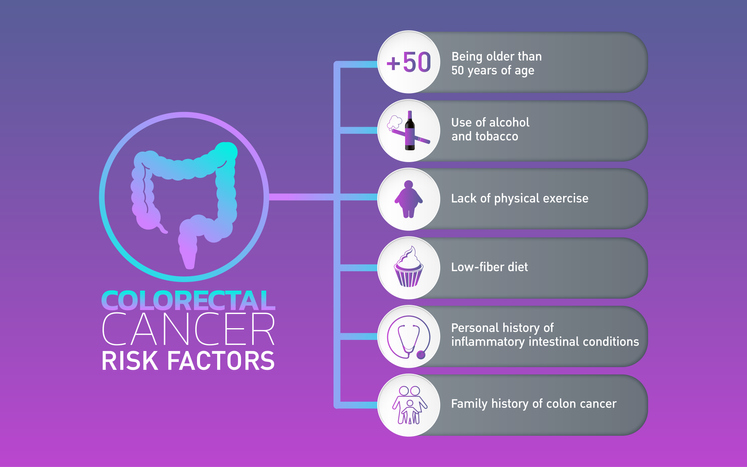Kirstie Alley’s Colon Cancer Was Recently Discovered Before Her Death. Be Proactive With Home Screenings.

By Joy Stephenson-Laws, JD, Founder
I was surprised by the recent passing of actress Kirstie Alley at 71-years-old. She died of colon cancer, and, honestly, I had no idea that she was suffering from this devastating cancer.
It seems like every month I learn about yet another person being diagnosed with or passing from colorectal cancer. This cancer, which is the third most common cancer diagnosed in the United States according to the American Cancer Society, is also affecting a lot of younger people.
Just earlier this month, Broadway actor Quentin Oliver Lee died of stage 4 colon cancer. He was only 34-years-old.
Alley’s family said that her cancer had only been recently discovered. Early screening for colorectal cancer is avaiable and important, because symptoms may not be apparent in the initial stages. Getting a colonoscopy is basically getting an ultrasound of your colon. It is an outpatient procedure that provides the most accuracy when it comes to detecting polyps (abnormal tissue growths) and cancer.
When you should have a colonoscopy depends on a variety of factors such as age, race, family history, existing health conditions and more. Moreover, there are home screening methods for colorectal cancer.

Due to the pandemic, home colon cancer screening kits, which are stool-based screening tests, became quite popular. When COVID-19 was really running rampant and lockdowns were enforced, people were not visiting their doctors for colonoscopies as much because this procedure was considered non-emergency (although I would beg to differ) and people were avoiding doctor’s visits out of fear of being exposed to COVID. These stool tests are simple. You send a sample to a lab, and the lab looks for and/or cancer biomarkers. If the lab detects something abnormal, a colonoscopy is highly recommended.
“Laura Makaroff, DO, senior vice president of prevention and early detection at the American Cancer Society (ACS), noted in an interview that stool tests are about as effective as colonoscopy for detecting cancer when used according to recommended schedules—annually for FIT [fecal immunochemical testing] and every 3 years for Cologuard. A colonoscopy is repeated every 10 years for patients with a normal result,” according to a report from the Journal of the American Medical Association (JAMA).
Cologuard looks for both abnormal DNA and blood in stool. Home screening is a great way to be proactive, but I want to be clear that it is in no way a replacement for a colonoscopy.
“The main thing I stress is that home tests are really for detecting cancer—or early cancer—or maybe a large bleeding polyp,” said Dr. Anne Mongiu, a Yale Medicine colorectal surgeon.
“Colonoscopy, on the other hand, not only looks for cancer, but it can also prevent cancer by removing polyps that, if left alone, could turn into a cancer. I tell my patients that a colonoscopy is like ‘yard maintenance,’ where the team comes out to not only examine the lawn, but also to spray all the weeds so they can’t grow up and ruin it.”
Be proactive in preventing colorectal cancer.
Smoking, a sedentary lifestyle and heavy alcohol consumption have all been linked to an increase in the risk of developing colon cancer. But perhaps the biggest risk factor of all is a poor quality diet and obesity.
Check out 5 Tips For a Healthy Colon, and never ignore any chronic digestive issues such as constipation, diarrhea and nausea.
Enjoy your healthy life!
Disclaimer: This article is not intended to provide medical advice. Please consult with your doctor or another competent healthcare practitioner to get specific medical advice for your situation.
The pH professional health care team includes recognized experts from a variety of health care and related disciplines, including physicians, attorneys, nutritionists, nurses, and certified fitness instructors. This team also includes the members of the pH Medical Advisory Board, which constantly monitors all pH programs, products, and services. To learn more about the pH Medical Advisory Board, click here.







